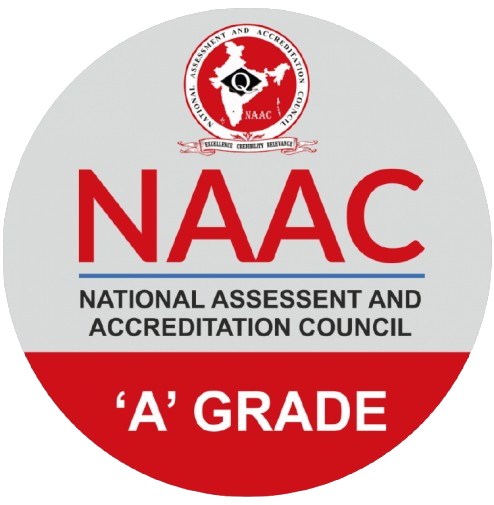AIML Department
PROGRAM EDUCATIONAL OBECTIVES (PEOs):
-
PEO1: Professional Competence
Graduates will establish themselves as competent professionals in AI, Machine Learning, and related technologies by applying theoretical knowledge and practical skills to develop intelligent systems that meet societal and industrial needs. -
PEO2: Higher Education and Research Excellence
Graduates will pursue advanced education, research, or certifications in emerging technologies and interdisciplinary domains, contributing to innovation, publications, and technological advancements. -
PEO3: Industry Readiness and Innovation
Graduates will collaborate effectively with industry partners, demonstrating entrepreneurial thinking, problem-solving skills, and adaptability to global technological trends in AI/ML-driven industries. -
PEO4: Ethical Leadership and Social Responsibility
Graduates will exhibit leadership, ethical behavior, and a commitment to lifelong learning while contributing to societal development through sustainable and responsible AI/ML applications.
Programme Outcomes (POs):
- Engineering knowledge: Apply mathematics, science, engineering fundamentals, and specialization knowledge to solve complex engineering problems.
- Problem analysis: Identify, formulate, and analyze complex engineering problems using research literature and foundational sciences.
- Design/development of solutions: Design system components or processes that meet public health, safety, cultural, societal, and environmental considerations.
- Conduct investigations of complex problems: Use research-based knowledge, experiments, interpretation, and data synthesis to provide valid conclusions.
- Modern tool usage: Apply modern engineering and IT tools, including prediction and modeling, with understanding of their limitations.
- The engineer and society: Apply contextual knowledge to assess societal, health, safety, legal, and cultural responsibilities.
- Environment and sustainability: Understand environmental and societal impacts of engineering solutions and demonstrate sustainable development knowledge.
- Ethics: Apply ethical principles and adhere to professional responsibilities and engineering norms.
- Individual and team work: Function effectively as an individual and as a member or leader in diverse and multidisciplinary teams.
- Communication: Communicate effectively with engineering communities and society through reports, documentation, presentations, and clear instructions.
- Project management and finance: Apply engineering and management principles to lead or manage projects in multidisciplinary environments.
- Life-long learning: Recognize the need for lifelong learning and engage in continuous technological adaptation.
PROGRAM SPECIFIC OUTCOMES (PSOs):
- PSO1: Ability to understand, analyze, and demonstrate knowledge of Artificial Intelligence, Machine Learning, and Data Engineering in addressing real-world problems to meet future challenges.
- PSO2: Ability to develop computational solutions and project development skills using innovative tools and techniques for solving problems related to Deep Learning, Machine Learning, and Artificial Intelligence.


